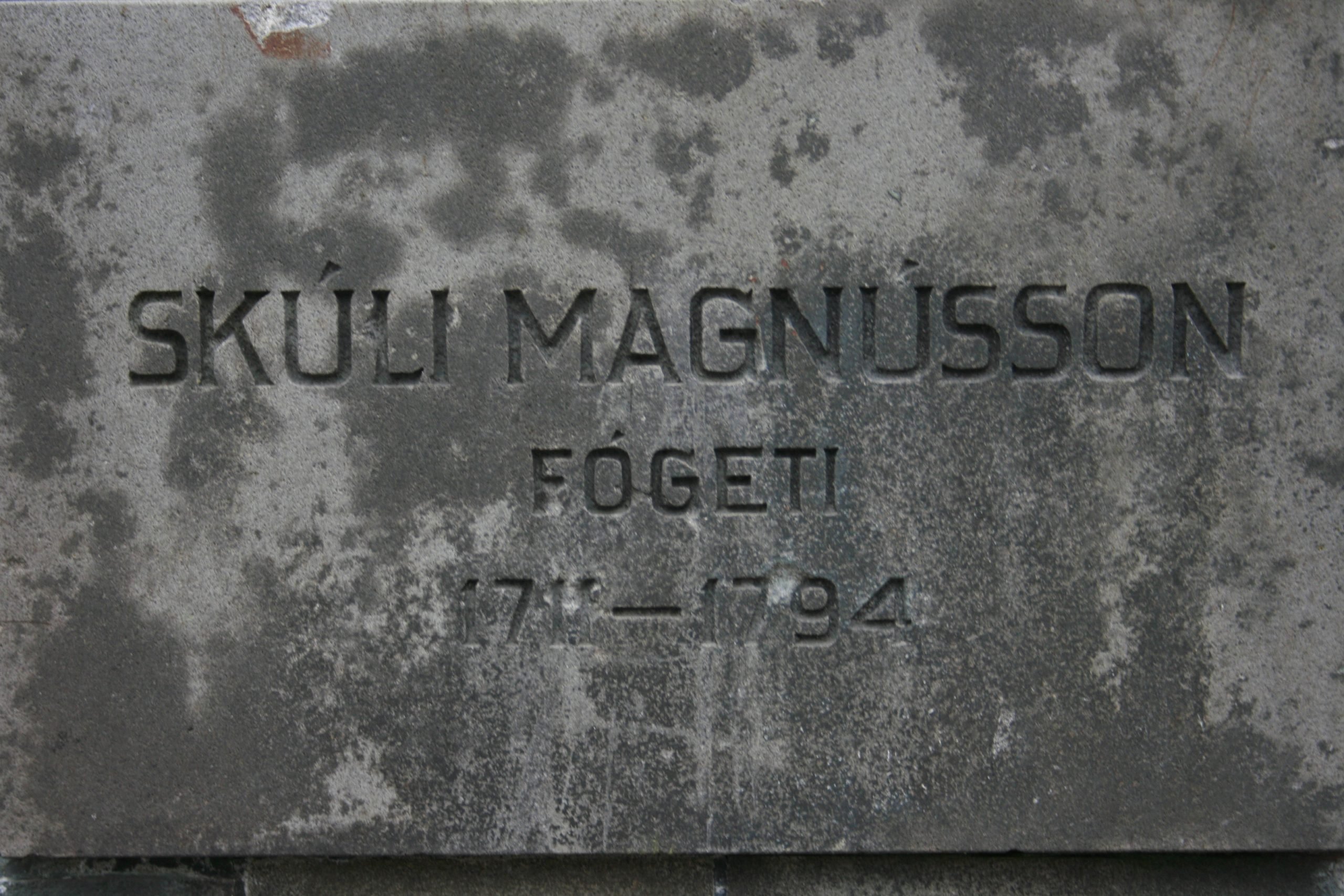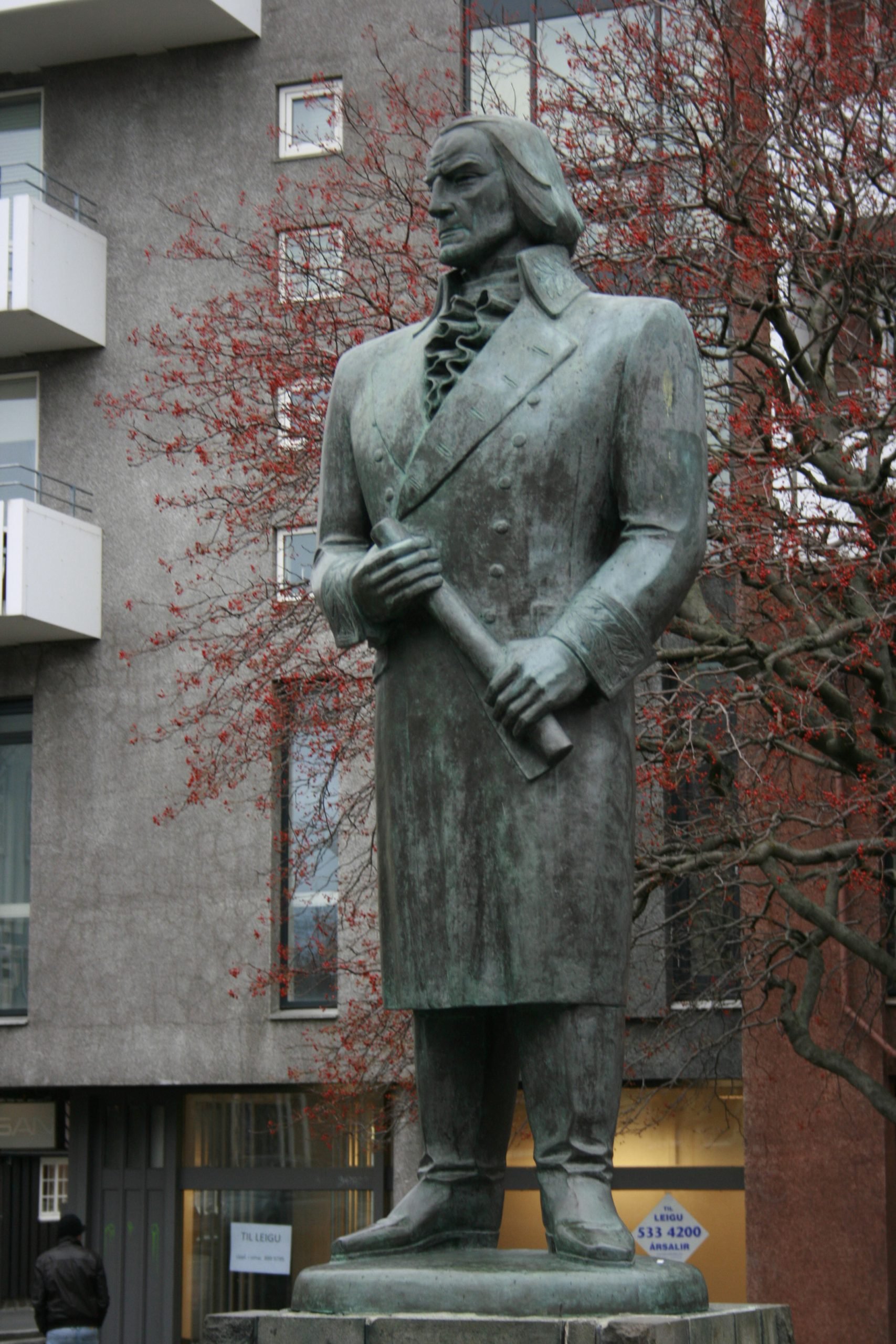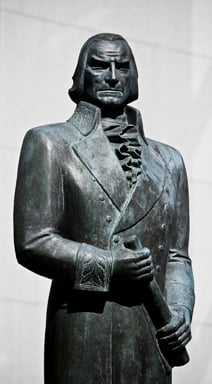There are a number of people who had a great influence on the nation through their lives and work. In the 1700’s, Iceland was under Danish rule. They held a trading monopoly and the merchants were often corrupt, whilst the communities were small and wielded little economic power.

Skúli Magnússon (1711-1794) was born in the remote village of Keldunes in NorthEast Iceland. His family moved to Húsavík, where his father was a priest. As a teenager, he worked in a Danish merchant’s company, learning the way business was conducted. The merchant told him to “Weigh it right” – meaning to cheat the poor customers. This made him very angry and he swore to use his life to replace the dishonest merchants and set up a trading system to improve the living standards of the people.
In 1732-34, he studied at Copenhagen university, though he didn’t gain his degree. Instead, he took a position in South Iceland as the county magistrate before moving 3 years later to Skagafjörður in the north.
In the first year in his new position, a Dutch trading ship foundered in the fjörd. Skúli, on discovering the sailors illegally trading with the local people, seized their ship and its cargo which he used to build the village of Akrar. He also procured new type for the printer, enabling the printshop to run the year round.
His vision was to use his wealth and power to destroy the corrupt system and strengthen the country. In Skagafjörður, he sued one of the monopolistic merchants for selling poor iron and mouldy flour and for selling over the maximum price allowed. He won the case and became very popular with the people.
He was known as ‘Skúli fógeti’ as he was the king of Denmark’s representative and when the country’s Danish Governor was dismissed in 1749 for drunkeness and bankrupcy, Skúli was appointed to his position—the first Icelander to become Governor.
He moved south to Bessastaðir in 1750 and established a commercia l enterprise in competition with the Danes which would make enhancements and inventions in agriculture and industry. Within 6 month s, he received t he Danish king’s approval. He became known as ‘The Father of Reykjavík’ and was the only one bringing news and information to the country. Reykjavík was little more than a smattering of houses, farms and fields at this time.
Skúli built simple factories, focussing on agricultural machinery, sulfur processing, a wool weaving centre, dyeing, rope-making, leather work, shipbuilding and fishing. He wanted Icelanders to use decked boats so they could fish in deeper seas, increase their catches with less risk to life than the open rowing boats used at the time. The only building from that time still standing is Aðalstræti 10, in Reykjavík’s centre, which operated as a factory until 1803.


It then became a private residence where some of Iceland’s most prominent citizens have stayed, including Jón Sigurðsson, the leader of the 19th century Icelandic independence movement. A round 2000, the conservationists renovating it wanted a business reflecting Skúli’s spirit of innovation and design to use it. Kraum was the company chosen. Skúli set up a farm on Viðey island and built Viðeyjarstofa as his official house between 1753-55. He worked tirelessly before finally retiring in 1793. He died the following year.
In 1954 a statue of Skúli Magnusson was erected to commemorate the centenary of free trade in Iceland.
–ASF



